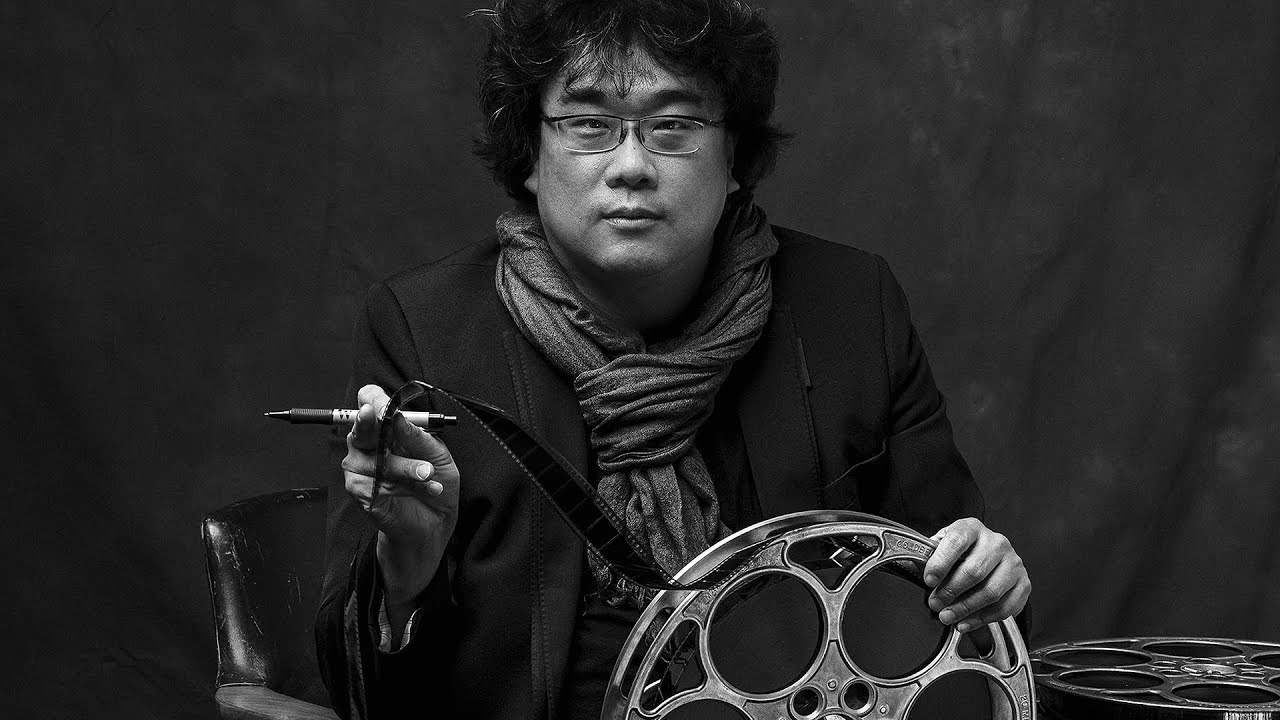Bong Joon-ho is a celebrated South Korean director, known for his unique and compelling filmmaking. He crafts intricate movies that blend genres, offering a thrilling mix of satire, dark humor, and family drama. He adeptly critiques social inequality while exploring deep human emotions. Bong Joon-ho is unafraid to tackle thrillers and political commentary, always open to innovation. What is his approach to directing?
I wouldn’t call myself a genre expert who deliberately breaks conventions. In Korea, we have a term, “casual dance,” where you move to the music with completely random steps. To dance like that, you don’t need dance history or knowledge of global styles – you just listen to your body. I think that’s how I make movies.
His characters are complex, nuanced, and driven by conflicting desires. This unpredictability extends to his plots, making it hard to guess the ending when watching a Bong Joon-ho film for the first time.
The success of “Parasite” (2019) at Cannes and the Oscars made Bong Joon-ho the first director to win both the Palme d’Or and the Academy Award for Best Picture. However, this recognition came after a long and challenging journey.
While we anticipate his new film in digital format, let’s revisit the key works that shaped his distinctive career.
Kinopoisk rating: 6.8/10.
IMDb rating: 6.9/10.
Barking Dogs Never Bite (2000)
This film brought Bong Joon-ho his initial success in Korea. True to his style, it’s a blend of dark comedy, drama, and a subtle detective story. His sharp, almost morbid humor is prominent, creating an absurd tragicomedy with a jazzy soundtrack. The quirky characters and the bleak yet smile-inducing portrayal of ordinary lives make this one of Bong Joon-ho’s best early works.
Unemployed Ko Yun-ju leads a stressful life, struggling to fit in at the university, living with his demanding pregnant wife, and annoyed by a neighbor’s dog’s barking. He decides to kill the dog, but is stopped by a neighbor and his own conscience. He locks the dog in a closet, only to realize it wasn’t the source of the noise, but another neighbor’s chihuahua.
Kinopoisk rating: 7.6/10.
IMDb rating: 8.1/10.
Memories of Murder (2003)
This exceptional film encapsulates the essence of Bong Joon-ho’s artistry. Realistic and brutal murders are juxtaposed with subtle irony, reflecting the culture of South Korean towns in the 80s-90s, marked by violence, poverty, and police incompetence. The characters are often careless, and detectives might fabricate evidence to declare someone guilty. The film masterfully blends comedy, thriller elements, and incredible editing. Despite being released 22 years ago, its captivating narrative, featuring jarring transitions like appetizing meat shots following crime scene close-ups, still resonates.
Based on real events, the film depicts the hunt for a serial killer in Hwaseong, Korea, from 1986 to 1991, a case unsolved for over 30 years. Bong Joon-ho focuses on the incompetent local police investigating these murders of women found bound, raped, and strangled with their own clothing.
Kinopoisk rating: 7.1/10.
IMDb rating: 7.1/10.
Snowpiercer (2013)
“Snowpiercer,” based on the graphic novel “Le Transperceneige,” stands out for its blockbuster scale, featuring a visually stunning world and a Hollywood cast including Chris Evans, Tilda Swinton, Octavia Spencer, and Ed Harris. Yet, Bong Joon-ho remained true to his vision, creating a conceptual film that explores social inequality in a literal and impactful way.
The story is set in a future where a climate change intervention caused an ice age. Survivors live on a massive train circling the globe, divided by class. The poor live in the rear carriages, while the elite enjoy luxury at the front, near the train’s creator. A rebellion starts in the back, aiming to reach the front and fight for equality.
Kinopoisk rating: 7/10.
IMDb rating: 7.3/10.
Okja (2017)
This heartwarming story features a giant CGI “pig-hippo” and demonstrates Bong Joon-ho’s ability to create mainstream films without compromising his artistic integrity. Produced by Netflix, it competed for the Palme d’Or at Cannes 2017. “Okja” offers a powerful commentary on meat consumption, ecology, activism, corporate greed, and human avarice, made accessible to a wide audience. Despite its box office underperformance, “Okja” remains a significant part of his filmography.
The plot involves a corporation that breeds genetically modified “super pigs.” One pig, Okja, develops a close bond with a young girl, Mija, in South Korea. When Okja is taken away for slaughter, Mija embarks on a journey to save her friend.
Kinopoisk rating: 8/10.
IMDb rating: 8.5/10.
Parasite (2019)
“Parasite” garnered numerous awards, including the 2019 Palme d’Or, the 2020 Golden Globe for Best Foreign Language Film, and 2021 Oscars for Best Picture, Best International Feature Film, and Best Original Screenplay. Bong Joon-ho himself won Best Director. This historic victory was considered unexpected and free from political influence. This South Korean film masterfully combines social commentary, complex characters, and dark humor with real-world horror.
The film centers on the impoverished Kim family: unemployed driver Ki-taek, his wife Chung-sook, and their two children. They live in a small basement apartment, struggling to make ends meet. Ki-taek’s son, Ki-woo, gets a tutoring job for a wealthy family. Sensing an opportunity, Ki-woo’s family infiltrates the rich Park family’s household, gradually taking over their lives.

